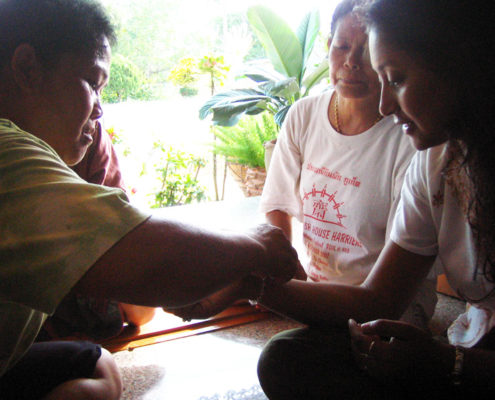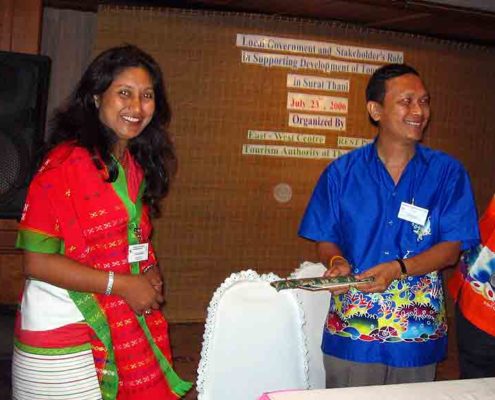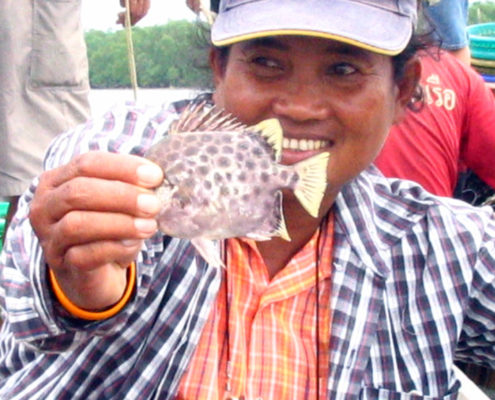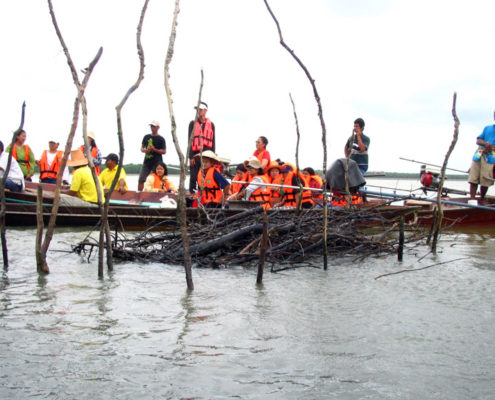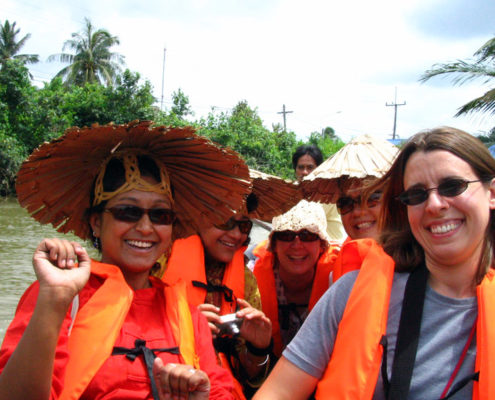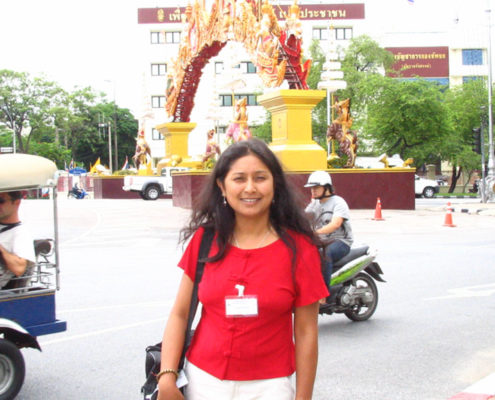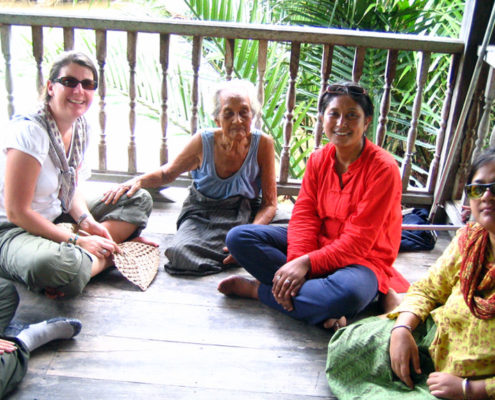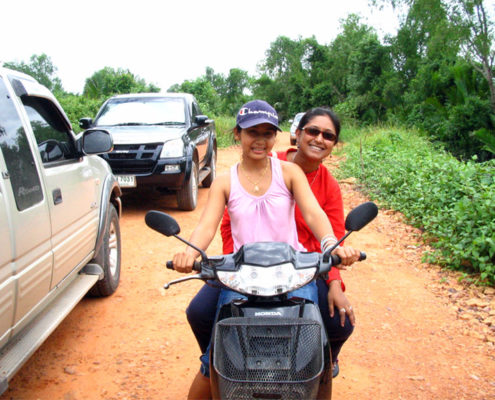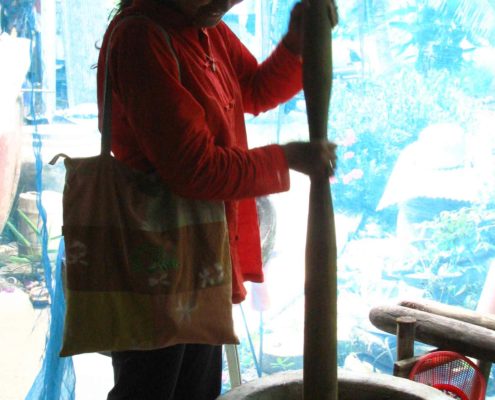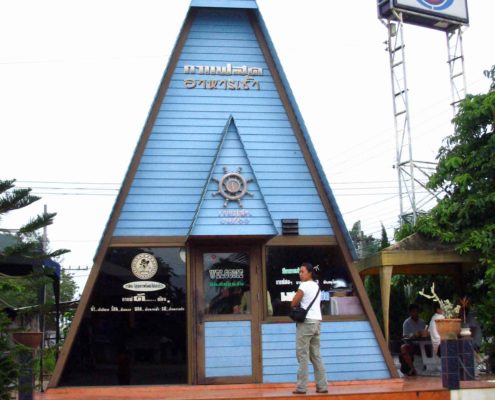Changing Faces Women‘s Leadership Program On Women’s Political Empowerment
in Asia, The Pacific, and the United States
Bangkok, (July 21 – 24, 2006)
After the exhilarating first part of the Changing Faces Women’s Leadership Program in Hawaii, we were asked to choose any Asian country for our field project. This trip would assess us as leaders.
I made a practical decision and chose Bangkok, Thailand. It was not only closer, but also one of the most sought after human trafficking transit and destination points. It’d give me the chance to interact with local human-rights representatives, enabling a stronger network for Impulse NGO Network.
The Leadership Program’s Bangkok Chapter was full of promise for me. The agenda included a prized interaction with renowned speakers and agencies and a first-hand interaction with a sample community, which would sharpen our ability to ascertain its potential. The first part of this Course began with two main aspects:
- interaction with international agencies, working in Asian countries
- institutional meetings with philanthropic and civil societies
Interaction: International Agencies
We were made to understand their approach and functioning, the types of issues they face, and the programs they devise to suit the conditions in Southeast Asia.
People like Dr Jean D’Cunha, Regional Director, United Nations Development Fund for Women (commonly known as UNIFEM), Dr Chalintorn Burian, Regional Director, Institute of International Education and Dr Juree Vichit-Vadakan, Chairperson, Centre for Philanthropy and Civil Society – presented papers at this gathering. Their presentations offered an insight into the functions of the agencies, especially those being led by women leaders like UNIFEM.
We too shared our knowledge and experiences. The topics broadly covered issues of migration, HIV/AIDS, elimination of violence against women, women political empowerment and gender program, especially elaborated by Dr Sutthana Vichitrananda, Director and Founder, Gender Development Research Institute, Thailand. The group discussion, consisting 15-20 people each, was very illuminating and introspective. We reflected on how our lives had changed after becoming women leaders and whether our life or work still needed change.
Personally speaking
The moment I decided to establish and lead my organization professionally, a strange confidence came over me. In fact, life itself is a changing process after all. You cannot leave things to chance. What needs to be changed has to be identified, and adjustments made accordingly. I believe wisdom lies in neither fixity nor change, but in the dialectic between the two.
Impressions of civil and philanthropic societies
Representatives of these organizations shared their work experience and suggestions about what can be done to improve the situation.
Khun Angkana Nilapaichitr gave special insight on the problems faced by Muslim women in Thailand. She described how the political situation led the male members of the families to abduction and later, disappearance – a fate, her own husband (a human rights lawyer) had to face, more than two years ago. To assume leadership among the Muslim women and struggle for justice and peace was a huge challenge that she chose and continued, despite such oppression.
Khun Rakawin Leechanavanichpan, Program Coordinator, Informal Economy Project, International Labour Organization (ILO) pinpointed how multinational companies engage Asian Labour forces and are virtually unaccountable, even for labour wages. She stressed that agencies like ILO have to take up the key issues to safeguard the interests of informal and unemployed workers, and to ensure labour protection and social security.
Khun Rosana Tositrakul, Bangkok Senator, Thailand & Member, Coalition of Consumer Protection Group, laid out certain consumer priorities, such as accountability and also presented a case study of drug procurement by the Ministry of Public Health.
Working for the rescue of trafficked women and children, Khun Cheunsuk Arsaithamkul shared that as for human trafficking, a rights-based approach is taken for handling crimes related to sexual harassment, rape and sex workers too. Effective laws notwithstanding, there was dire need for civil/philanthropic societies to continue a dialogue process with law enforcement agencies and other partners.
Visiting Surat Thani
We also had a wonderful chance to visit the picturesque Surat Thani island Ko Samui on our field trip. The idea was to study and see how eco and community-based tourism can offer safer options in ensuring non-violation of human rights. The participants were divided into groups, each with a translator, and accommodated at a homestay within the island community. This close-up of their lifestyle and culture made a huge impact on us. I noticed that the people were very enterprising and business-oriented.
Shrimps are a local delicacy; each family having its own shrimp farm. The women prepare a traditional shrimp chutney, which looks much like the ‘nakham’ – dry fish paste relished by the Garos of West Meghalaya or even the ‘tung-tap’ – soya bean chutney of the Khasis of East Meghalaya. They dry their shrimp and then crush it in a wooden mortar-and-pestle, preserving it like a pickle for future use. They also love the coconut-flavored cocoon-worm, often used as a side dish. Besides that, they chew betel nut too, just as Khasis do. Except, we eat it ripe and they don’t. They do a little bit of weaving and handicrafts as well, which they offer as mementoes to tourists. I felt that this could be a good industry to tap into if guided well by organizations like REST (Real Escape from the Sex Trade) and supported by the government. We also enjoyed watching a stellar performance by veteran islanders, as we lauded their hospitality and warm, community living.
The Vice-Governor of Surat Thani gave us a warm farewell, reiterating the potential for community-based tourism. I agree with him because, so far, commercial tourism policies have been quite neglectful towards the safety and interests of women and children. In places like Thailand, engaging in women trafficking from countries like China, Vietnam Laos, Myanmar and others has become rather easy because of this commercial promise of ‘smooth as silk’. In such circumstances, community-based tourism is always a safer option, because it is transparent and under the close observation of a community.
I believe that given a chance, the uniqueness and novelty of community-based tourism would definitely flourish… like the freshness of the sea breeze, whispering through the pristine mangrove forests.

